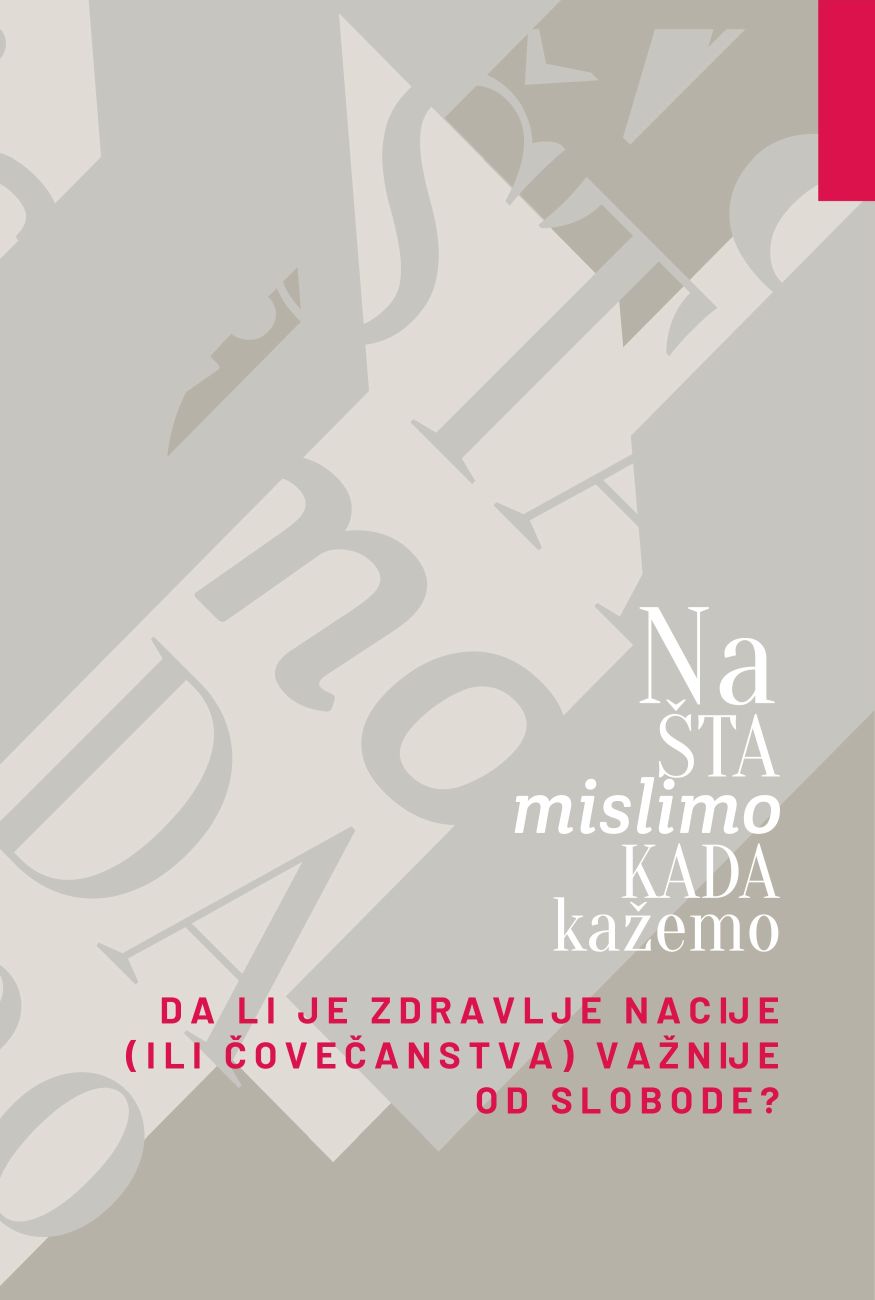
Na šta mislimo kada kažemo… Da li je zdravlje nacije (ili čovečanstva) važnije od slobode?
European integrations: Chapter 10 SDGs: SDG 03 Author(s): Aleksandar Mojašević , Stefan Stefanović Thematic Area: Active Citizenship and Democratic Institutions, Philanthropy, Solidarity, and Care Published: 2022 ISBN: 978-86-80484-93-8 Pages: 13 Language: Serbian Publisher: Institute for Philosophy and Social Theory, University of Belgrade Tags: book | More DetailsThis paper addresses the complex intersection of public health and individual freedoms, particularly in the context of the COVID-19 pandemic. The authors examine the pandemic’s implications for both individual and collective health, as well as the ethical and political dilemmas it raises regarding freedom and security. In particular, the book focuses on the challenges faced by the Serbian healthcare system in promoting vaccination and public health compliance, revealing the tensions between public health policies and individual autonomy.
The publication explores the dynamics of vaccine acceptance in Serbia, analyzing the reasons for low vaccination rates among young people and suggesting behavioral science-based interventions to improve vaccine uptake. Drawing on international experiences, such as those in the U.S. and other European countries, it advocates for targeted campaigns tailored to specific demographics, particularly the youth. The authors argue that addressing systemic trust deficits, enhancing education about health, and employing behaviorally informed strategies are crucial for building public support for vaccination.
This paper is of great policy relevance, especially in the context of the UN’s Sustainable Development Goals (SDGs) and EU integration. The promotion of public health and the protection of individual freedoms are essential components of sustainable development and social cohesion, both of which are central to the SDGs. As the EU continues to prioritize public health, digital transformation, and societal well-being as part of its integration policies, the insights from this work provide valuable guidance for shaping future health policies that balance personal liberties with the collective good.
Back
